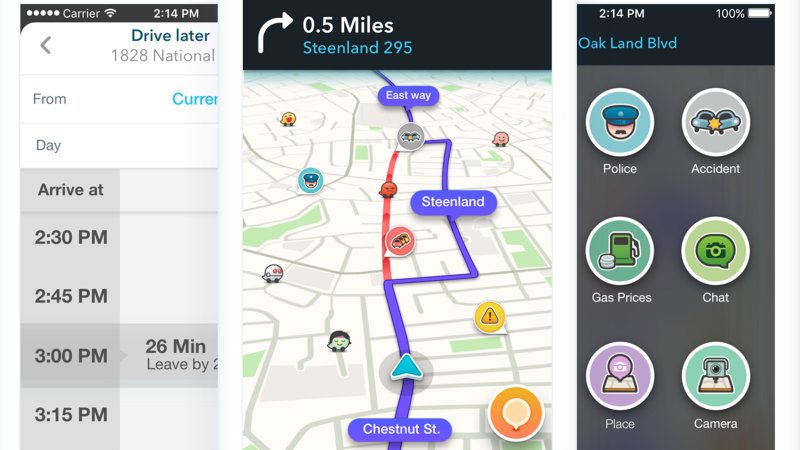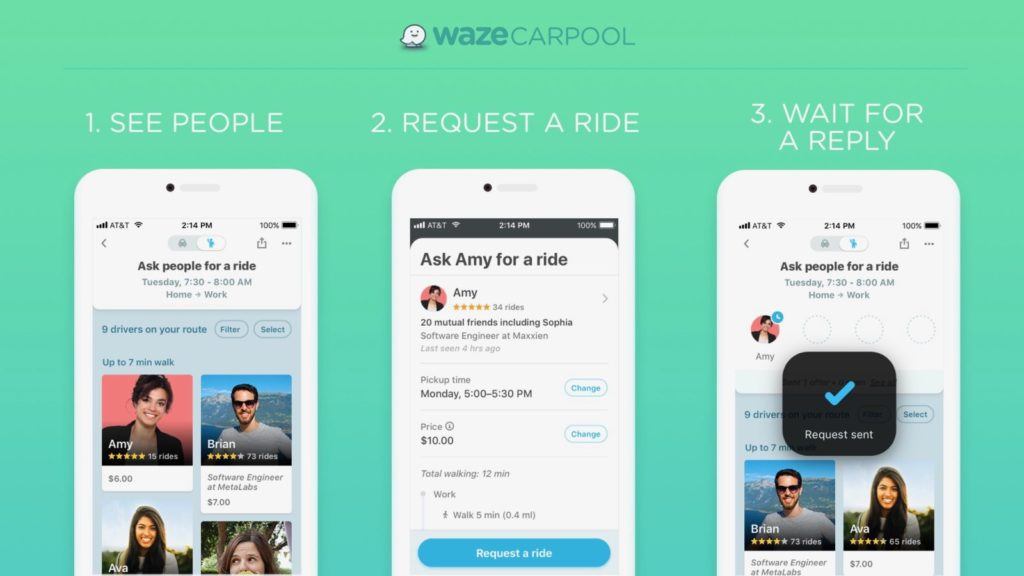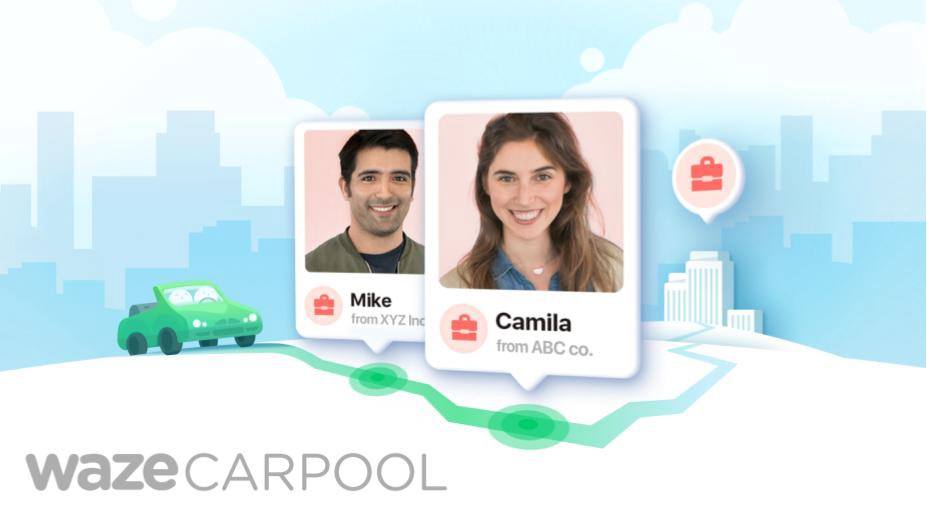Waze – Get the best route in real time with help from fellow drivers.

“While carpooling isn’t new, Waze Carpool is a fresh way to share the road and the cost of commuting. A cost-effective alternative to rideshare services, Carpool lets you choose to drive or ride with people already going your way. Use the Waze app to drive, and the Waze Carpoolapp to catch a ride. Happy carpooling!” WazeCarpool
Waze was founded in 2006 by three Israelis engineers Ehud Shabtai, Amir Shinar and Uri Levine, and has been acquired by Google in 2013. Today it has 130 million monthly users. It is a software app concerned with navigation and route optimization. Its original product, the Waze app itself, provides value to drivers by supplying them with turn-by-turn navigation information and real time optimal route recalculations by incorporating and user-submitted travel times and route details. Moreover, unlike Google Maps, Waze reports accidents, police presence, speed cameras and blocked roads. Backed by Google, many of the app’s user believe it to provide the most accurate destination arrival times (based on interviews with 5 app users.)
WAZE CARPOOL
In, 2018, having collected 12 years of customer location, addresses, mobility and routes-taken data, Waze rolled out a new product: Waze Carpool. Describe in Waze’s own words:
“While carpooling isn’t new, Waze Carpool is a fresh way to share the road and the cost of commuting. A cost-effective alternative to rideshare services, Carpool lets you choose to drive or ride with people already going your way. Use the Waze app to drive, and the Waze Carpoolapp to catch a ride. Happy carpooling!” (Waze website)
The new value proposition for the consumer is the follow: First, Waze attempts to decrease road traffic, and thus both decrease commute times and decrease overall fume emissions. Second, Waze attempts to foster community of people who live in common geographic locations (Waze data indicates user home addresses) and travel to similar destinations (again, Waze collets all individual app user’s all destinations and routes taken).
The value proposition for Waze: First, Waze is generating good PR with their environmentally friendly orientation. Second, this new product increases product stickiness. Third, Waze hopes to increase app adoption to individuals who are not car drivers themselves. Fourth, Waze hopes to attract customers away from Uber, Lyft, and other ride share applications towards its carpooling solution.
The way that WazeCarpool works is that it uses the amazing volume of data that Waze has collected in the last 13 years (2006-2013) to match drivers who tend to depart from similar geographic locations at similar times and heading forward similar destination. For example, you can imagine a situation that both you and your colleague, who lives a block away, both leave your neighborhood around 8am to get to work by 8:30am. This is a likely scenario in which Waze would suggest a match.
To develop this new service, Waze had to invest in developing a new user interface into its current app. The company also built a different app for WazeCarpool users who do not use the original Waze application. Aware of the danger of user multihoming (due to emerging competitors as well as availability of inexpensive substitutes – ride-share apps: Uber and Lyft) and the necessity of generating initial critical user volume, Waze is very committed to acquiring initial volume of users who will set network effects into motion, and thus discourage multihoming. This is demonstrated by their current strategy to subsidize the users who volunteer as drivers participating in the carpooling arrangement. Today, WazeCarpool is operating at a loss.
WazeCarpool faces few challenges. First, they have many competitors: there is a number of Carpooling apps serving the US market today. Further, if big-scale ride-share applications: Uber and Lyft decide to participate in this market, this could significantly increase competition. Second, safety is a big concern. A lot of people do not want unknown potential “matches” to know where they live. Similarly, since Waze provides matches of users who do not know each other, a lot of people might be afraid to share a car with a stranger. Uber and Lyft were able to overcome this challenge by verifying drivers and conducting background checks. WazeCarpool does not do that.
I believe that in order to stay successful, Waze will have to continue to subsidize its users and (thus operate at a loss) until it both reaches network effects on the scale that will keep users engaged, and drives a cultural change that will make people become open to revealing their address and destinations to strangers as well as feel safe to share rides with people they do not know.







As a heavy Waze user I’m glad to see this post! Multi homing is REAL. Even with the basic functionality, many times I use google maps to navigate while driving instead of Waze, maybe because I use google maps for other purposes more often and it has a more prime location within my phone’s screen real estate. However, Waze does provide some clear differentiation when driving long distances on highways as it helps you track accidents or even police controls ahead. I have to say I have never used the carpooling feature — I guess to me it still feels awkward to jump on a stranger’s car… Wait, doesn’t Uber do you just that?
I didn’t know that Waze had a carpooling option and I am so glad to find that out, thank you for your post! I have noticed that in France, carpooling is way more mainstream than in the United States so I really hope it develops well. I find it to be very cost saving, better for the environment and it bolsters human interraction beyond the usual relationship of driver-client; I know some people who does use it for the sociable and friendly aspect!